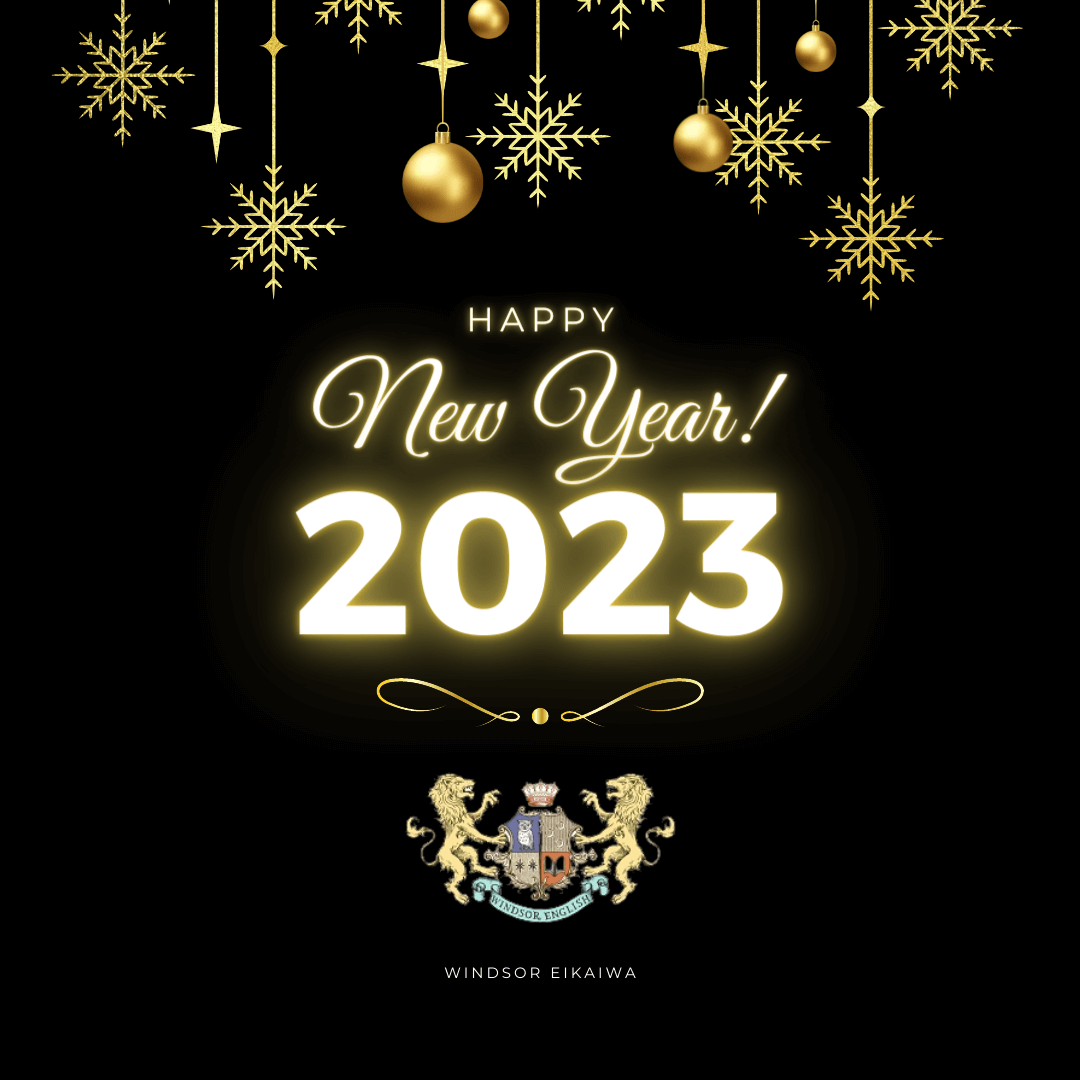英語で「明けましておめでとう」「今年もよろしくお願いします」を言うには?
/英語で「明けましておめでとうございます」
「明けましておめでとうございます」は、どんな状況でも英語で「Happy New Year」と言えるので簡単です。
日本語と同じように、「Happy New Year」と言われたら「Happy New Year」と返事をします。
[例文]
ジェイミー:Hey Tim, Happy New Year!
(やあ、ティム。明けましておめでとう!)
ティム:Happy New Year! I hope you have a fantastic 2023.
(明けましておめでとう! 2023年が素晴らしい年になりますように。)
「Happy New Year」の後に言える表現はたくさんありますが、それについては別のブログで取り上げたいと思います。
上の例文の場合、ティムは「I hope you have a fantastic 2023.」と言いました。
「you」の部分を「you and your family」または「you and yours」に変えることもできます。
「you and your family」と「you and yours」は基本的には同じ意味です。
英語で「今年もよろしくお願いします」
「今年もよろしくお願いします」とは基本的に、新年も相手と良い関係を続けたいという意味です。
とても良い言葉ですが、英語ではこの言葉を言う習慣がないので、英語に翻訳するのは難しいです。
また、日本語でもあまり意味はなく、新年の初めに言うのが習慣となっています。
そのため、英語に翻訳しようとするべきではないと思います。
カジュアルな「今年もよろしくお願いします」
カジュアルな場面では、英語で「今年もよろしくお願いします」と言うことはありません。
「Happy New Year」に続けて、相手に何か良いことを望む言葉や期待する言葉を言うだけです。
[例文]
Happy New Year John, I wish you and your family a wonderful new year.
(明けましておめでとうございます、ジョン。あなたとあなたの家族が素晴らしい新年を迎えることを願っています。)
ビジネスでの「今年もよろしくお願いします」
ビジネスでは「今年もよろしくお願いします」を英語に翻訳できるかもしれません。
やはり状況によって異なりますが、次の2つの例文のように言うことができます。
[例1]
Happy New Year Richard, I’m looking forward to working together in the new year.
(明けましておめでとうございます、リチャード。新年に一緒に仕事ができることを楽しみにしています。)
[例2]
Happy New Year Dennis, my team members and I are excited about what we can accomplish together in the new year.
(明けましておめでとうございます、デニス。私もチームメンバーも、新年に一緒に何かを達成できることを楽しみにしています。)
[例1] では、リチャードに「looking forward to working together in the new year」と伝えています。
これは、社内の人もしくは別の会社で一緒に仕事をしている人などに使うことができます。
[例2] では、デニスに「excited about what we can accomplish together in the new year」と伝えています。
こちらも、会社で一緒に働いている人やパートナー企業で働いている人に言うことができます。
しかし、上記2つの例はいずれも、ビジネスオーナー(レストランのオーナーなど) が顧客に対して使うことはできないことにご注意ください。
まとめ
結論として、英語で新年の挨拶をするときは、英語が持つ慣習的な新年の言葉を使うのが一番良いと思います。
上記の[例1]と[例2]のように何か特別に言いたいことがない限り「今年もよろしくお願いします」を英語に直訳しようとしない方が良いです。
Happy New Year and I wish you and yours all the best for 2023!
[English version]
「明けましておめでとうございます」in English
「明けましておめでとうございます」is easy to translate in English as it can be translated in any situation as “Happy New Year”. Same as in Japanese, both speakers usually repeat the same expression in English as in the following example:
Jaimie: Hey Tim, Happy New Year!
Tim: Happy New Year! I hope you have a fantastic 2023.
There are many expressions we could use after saying Happy New Year which we’ll cover in a different blog. In this case Tim said “I hope you have a fantastic 2023”. We could change “you” to “you and your family” or “you and yours”. Both “you and your family” and “you and yours” mean basically the same thing.
「今年もよろしくお願いします」in English
今年もよろしくお願いします basically means in Japanese that we would like to continue having a good relationship with the other party in the new year as well. It’s a very nice thing to convey to another person but it’s something that isn’t customary to say in English and thus tricky to translate. Also sometimes even in Japanese it doesn’t mean much and is just a customary thing to say at the beginning of the new year in which case we should definitely not try and translate it in English.
「今年もよろしくお願いします」In casual situations
In this situation we just wouldn’t say it in English. We would just say “Happy New Year” and any other good thing we would wish or hope for the other party.
Ex. Happy New Year John, I wish you and your family a wonderful new year.
「今年もよろしくお願いします」In business situations
In this situation maybe we could translate「今年もよろしくお願いします」. Again what we say depends on the situation but we could say something as in the following two examples.
Ex.1 Happy New Year Richard, I’m looking forward to working together in the new year.
Ex.2 Happy New Year Dennis, my team members and I are excited about what we can accomplish together in the new year.
In Ex.1 we tell Richard that we are “looking forward to working together in the new year” so it could be a person in our company or a person we do business with in a different company.
In Ex. 2 we tell Dennis that we are “excited about what we can accomplish together in the new year” and again we would say it to someone we work closely together in our company or to someone working in a partner company.
Please keep in mind that none of the two examples above can be used by a business owner (ex. A restaurant owner) to a customer.
Conclusion
In conclusion, when giving New Year greetings in English I think it’s best to use the customary expressions English speakers use and not try and translate 「今年もよろしくお願いします。」directly from Japanese unless there is something specific you would like to say to the other party about 2023 as in the business examples 1 and 2 above.
Happy New Year and I wish you and yours all the best for 2023!






